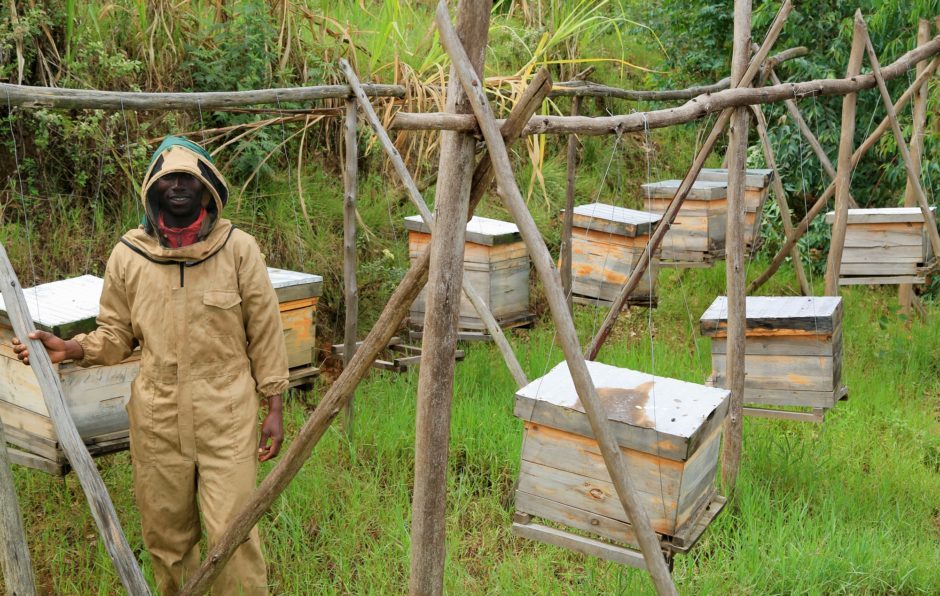
The Far Reaching Benefits Of Bee-Keeping
Rwanda hosted the 5th All-Africa International Honey Industry Exhibition in September under the theme ‘Driving Socio-Economic Growth in Africa: The Role of Commercial Bee-keeping’. Statistics show the demand for honey is increasing and in Rwanda, there is huge potential to capitalize on this market, particularly since Rwanda was recently registered as eligible to export honey to the EU. The National Agricultural Export Development Board (NAEB) is encouraging honey production for its economic and environmental benefits. Currently, there are around 35,000 bee-keepers and 90,000 modern beehives, and a further 200,000 traditional hives throughout the country.
With such a high density of people living around Akagera National Park (an increasing population of more than 300,000 people), it is important that every livelihood opportunity is explored. Bee-keeping, with its low start-up costs, low maintenance requirements, and low use of land, combined with a high-value product, offers an ideal means for rural and often poor families to supplement their income. In the case of Akagera National Park, it is seen as having the potential to not only supplement the incomes of local farmers living on the boundary but also dissuade them from engaging in poaching in the park and protect the environment bees need in order to produce honey.
COPROMA is a bee-keeping cooperative on the boundary of Akagera National Park operating since 2009. In 2014 the cooperative received a boost from the park management, Akagera Management Company (AMC), for training support, modern hives, and a secured area in the park buffer zone to place their beehives. The vision of AMC is to promote beekeeping by community members all around the park. AMC has since added three more cooperatives to the growing portfolio; KOPANYAKA, UMURAGE, and KORA NEZA. Around 1.7 tonnes of honey was harvested in 2015 across the four cooperatives, and the target is to reach three tonnes in 2016.
Encouraging honey production has far-reaching benefits. As well as the economic value, in order to produce honey bees need flowering trees and plants so encouraging honey production promotes the growth and protection of natural areas. Honey is one of nature’s wonders; most commonly used as a sweetener, it is also reputed to have several health benefits including anti-biotic and anti-fungal properties and as a source of vitamins and minerals which help to boost immunity. In addition to honey, bees produce wax which also has applications in the food, cosmetics, and pharmaceutical industries.
Our survival is dependent on bees; we rely on them to pollinate our crops. Yet, on a worldwide scale, honeybees have dramatically declined in recent years mostly due to pesticides used in Agriculture, and climate change. Do your part and become bee-friendly; attract bees in your garden through planting native flowers and flowering fruit and vegetables, provide a shallow source of water where bees are able to land to drink, and avoid using pesticides in your garden.
For more information:
Akagera Management Company
akagera@african-parks.org

